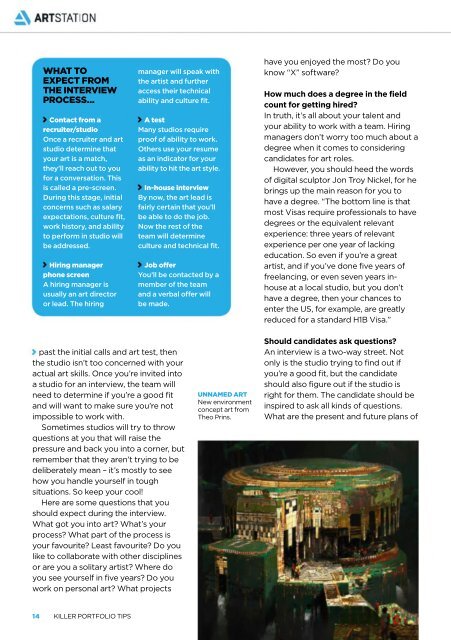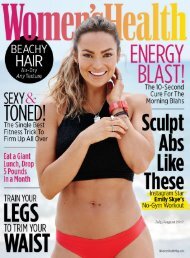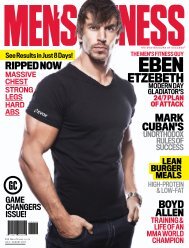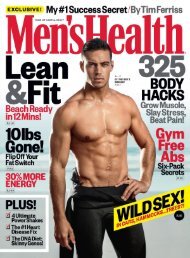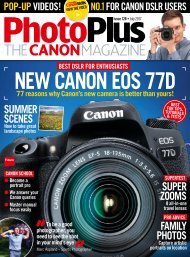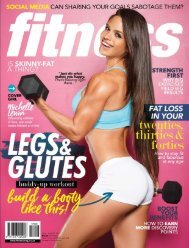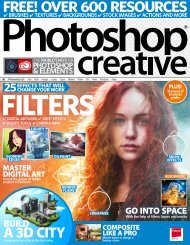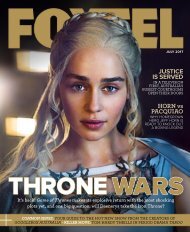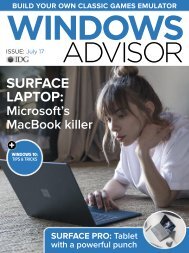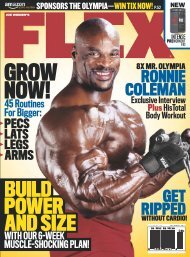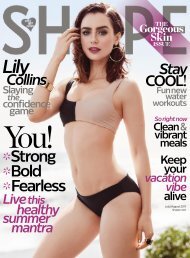i-m-a-g-i-n-efx-august
You also want an ePaper? Increase the reach of your titles
YUMPU automatically turns print PDFs into web optimized ePapers that Google loves.
WHAt to<br />
exPeCt from<br />
tHe intervieW<br />
ProCess…<br />
Contact from a<br />
recruiter/studio<br />
Once a recruiter and art<br />
studio determine that<br />
your art is a match,<br />
they’ll reach out to you<br />
for a conversation. This<br />
is called a pre-screen.<br />
During this stage, initial<br />
concerns such as salary<br />
expectations, culture fit,<br />
work history, and ability<br />
to perform in studio will<br />
be addressed.<br />
Hiring manager<br />
phone screen<br />
A hiring manager is<br />
usually an art director<br />
or lead. The hiring<br />
manager will speak with<br />
the artist and further<br />
access their technical<br />
ability and culture fit.<br />
A test<br />
Many studios require<br />
proof of ability to work.<br />
Others use your resume<br />
as an indicator for your<br />
ability to hit the art style.<br />
in-house interview<br />
By now, the art lead is<br />
fairly certain that you’ll<br />
be able to do the job.<br />
Now the rest of the<br />
team will determine<br />
culture and technical fit.<br />
job offer<br />
You’ll be contacted by a<br />
member of the team<br />
and a verbal offer will<br />
be made.<br />
have you enjoyed the most? Do you<br />
know “X” software?<br />
How much does a degree in the field<br />
count for getting hired?<br />
In truth, it’s all about your talent and<br />
your ability to work with a team. Hiring<br />
managers don’t worry too much about a<br />
degree when it comes to considering<br />
candidates for art roles.<br />
However, you should heed the words<br />
of digital sculptor Jon Troy Nickel, for he<br />
brings up the main reason for you to<br />
have a degree. “The bottom line is that<br />
most Visas require professionals to have<br />
degrees or the equivalent relevant<br />
experience: three years of relevant<br />
experience per one year of lacking<br />
education. So even if you’re a great<br />
artist, and if you’ve done five years of<br />
freelancing, or even seven years inhouse<br />
at a local studio, but you don’t<br />
have a degree, then your chances to<br />
enter the US, for example, are greatly<br />
reduced for a standard H1B Visa.”<br />
past the initial calls and art test, then<br />
the studio isn’t too concerned with your<br />
actual art skills. Once you’re invited into<br />
a studio for an interview, the team will<br />
need to determine if you’re a good fit<br />
and will want to make sure you’re not<br />
impossible to work with.<br />
Sometimes studios will try to throw<br />
questions at you that will raise the<br />
pressure and back you into a corner, but<br />
remember that they aren’t trying to be<br />
deliberately mean – it’s mostly to see<br />
how you handle yourself in tough<br />
situations. So keep your cool!<br />
Here are some questions that you<br />
should expect during the interview.<br />
What got you into art? What’s your<br />
process? What part of the process is<br />
your favourite? Least favourite? Do you<br />
like to collaborate with other disciplines<br />
or are you a solitary artist? Where do<br />
you see yourself in five years? Do you<br />
work on personal art? What projects<br />
unnAmed Art<br />
New environment<br />
concept art from<br />
Theo Prins.<br />
Should candidates ask questions?<br />
An interview is a two-way street. Not<br />
only is the studio trying to find out if<br />
you’re a good fit, but the candidate<br />
should also figure out if the studio is<br />
right for them. The candidate should be<br />
inspired to ask all kinds of questions.<br />
What are the present and future plans of<br />
14 KILLER PORTFOLIO TIPS


